
The Annotated Letters of Christopher Smart
英国十八世纪最奇怪的诗人斯玛特《书信集》现货!非代购!非“海外库房”发货!
¥ 349 八品
仅1件
作者Rizzo, Betty, and Robert Mahony (eds).
出版社Southern Illinois University Press
出版时间1991
装帧精装
页数184页
上书时间2024-07-16
- 在售商品 暂无
- 平均发货时间 1小时
- 好评率 暂无
- 店主推荐
- 最新上架
商品详情
- 品相描述:八品
- 图书馆藏书
- 商品描述
- Christopher Smart’s poetry is notable for its visionary power, Christian ardor, and lyrical virtuosity. Poets, including Robert Browning , have long been the warmest and most perceptive admirers of Smart’s poetry, which is more nuanced than its reputation as a precursor to the Romantic tradition allows. In a 1975 radio broadcast in Australia, Peter Porter spoke of Smart as "the purest case of man's vision prevailing over the spirit of his times."Smart was born April 11, 1722 at Shipbourne in Kent, the youngest of three children of Peter and Winifred Griffiths Smart. He was proud of having Welsh ancestry through his mother, who belonged to a family from Radnorshire; his boast in Jubilate Agno (first published in 1939 as Rejoice in the Lamb), "For I am of the seed of the WELCH WOMAN and speak the truth from my heart," is one of several references to his Welsh descent. Peter Smart had moved to Kent from Durham to take over the stewardship of Fairlawn, an estate belonging to the Vane family, whose principal seat was Raby Castle in Durham. Peter Smart himself belonged in a modest way to the landowning gentry, but "having been originally intended for Holy Orders, had a better taste for literature than is commonly found in country gentlemen" (so writes Christopher Hunter, Christopher Smart's nephew, whose 1791 account of Smart's life is the primary source of biographical information). If, as seems likely, this Peter Smart was the same one whose signature appears on the translation of an important Rosicrucian document dated 1714, Christopher Smart's interest in the supernatural and occult may have begun early. His earlier forebears included another Peter Smart—a prominent Puritan divine, prebendary of Durham Cathedral in the reign of Charles I, and one-time headmaster of Durham School who was jailed for ten years for publishing a fierce antiprelatical sermon in 1628. Another ancestor through his father was the 16th-century preacher Bernard Gilpin, the "Apostle of the North," renowned on the opposite side for his steadfast adherence to Catholic principles. Christopher Smart's religious preoccupations thus had mixed origins in his family history.The Medway valley where he spent his earliest years became Smart's Arcadia; references in his poetry to the Kentish countryside around Shipbourne are always suffused with nostalgia. "For I bless God in SHIPBOURNE FAIRLAWN the meadows the brooks and the hills," he wrote in Jubilate Agno, 25 years after leaving them. This phase of his life came to an abrupt end in 1733 with the death of his father. Left in straitened circumstances, Winifred Smart returned with the children to Durham, where the 11-year-old Christopher was taken under the wing of Lord Barnard (Henry Vane) and his family at Raby Castle and sent to Durham School. This period, too, however, he remembered as a happy one, in which he had the run of Raby's "blissful bowers" and his poetic gifts were fostered by noble patrons, as he recorded in "To the Rt. the Hon. Lord Barnard on His accession to that Title" (published in the Gentleman's Magazine, December 1754). According to a story related by Smart's daughter, Elizabeth Le Noir, in a letter to E. H. Barker (circa 1825), and corroborated by allusions in Jubilate Agno, he had a youthful love affair with the daughter of Lord Barnard, Anne Vane; she is said to have been the subject of an amorous poem that Smart claimed to have written at the age of 13: "To Ethelinda, on her doing my verses the honour of wearing them in her bosom" (first published in Poems on Several Occasions [1752]). Le Noir relates that "this very spirited ode had taken such effect that these young lovers had actually set off on a runaway match together; they were however timely prevented and saved." Whatever the truth of this colorful story, Smart never forgot Anne Vane, who is recalled by name or other reference with loving frequency in Jubilate Agno.After distinguishing himself in his classical studies at school Smart went up to Pembroke Hall, Cambridge, at the age of 17, with the help of an annual allowance from Anne Vane's aunt, the duchess of Cleveland (Henrietta Fitzroy). As an undergraduate he earned acclaim both for his classical learning and for his abilities as a poet, which were considerable enough to win for him for three years in succession the honor of composing the Latin verses to accompany the tripos lists. In 1742 he was awarded the coveted Craven scholarship. He graduated the following year, celebrating the occasion with an ode, "On Taking a Bachelor's Degree" (published in the Student, September 16, 1750). Two years later he was elected to a fellowship at Pembroke.All was set, it might have seemed, for the comfort, security, and modest distinction of an academic career, but Smart's desires and ambitions were pulling him in other directions. Already he had sought the attention of Alexander Pope by sending him Carmen Cl. Alexandri Pope in S. Caeciliam Latine redditum (1743), a Latin version of Pope's Ode for Musick (1713), to which Pope responded with a courteous and encouraging letter. By 1744 he had begun to frequent London; soon he was spending more time in town than in college, competing for recognition as a poet, enjoying the pleasures of the city, and running up tailor's bills. At Cambridge he showed little inclination to settle down to the tranquil seclusion of college life. His ode "On an Eagle confined in a College-Court," written sometime between 1744 and 1746 and published in the Student for June 20, 1751, is an eloquent expression of his discontent: though ostensibly concerned with the oppressive domination of mathematics and pedantic scholarship at the expense of humane letters, the poem clearly voices a more personal sense of frustration. Like the caged eagle, "Thou type of wit and sense confin'd," the poet cramped in his "servile cell" can find no outlet for his "daring fire."Nevertheless, it was during this period that Smart's first original publication appeared: to the second edition of his Latin version of Pope's ode was added his own "Ode for Musick on St. Cecilia's Day." This poem was Smart's first major essay in the "sublime" mode. Smart asserts in a preface that his models, the Pindaric odes of John Dryden (1687) and Pope on the same subject, were, aradoxically, blemished by their beauty: in achieving "exact unity of design" they forfeited some of the "enthusiastic fire and wildness" of Pindar, which derives from the "vehemence of sudden and unlook'd for transitions."Smart at this time was breaking out in other, more material ways: drinking and entertaining prodigally, running up debts from which the hasty intervention of friends and colleagues rescued him, and producing and acting in a farce of his own composition, The Grateful Fair; or, A Trip to Cambridge. Thomas Gray, then at Peterhouse, gives an amusing account of this venture in a letter to William Mason written in March 1747, commenting with grim prescience that Smart's drunkenness, extravagance, and wild behavior would inevitably lead him to jail or to Bedlam. While he was a Cambridge fellow, Smart had his second love affair, pursuing, as Hunter records, "a long and unsuccessful passion" for Harriote Pratt, sister of undergraduate friends of Smart and daughter of a Norfolk landowner. He addressed several poems to her and remembered her kindly in Jubilate Agno.
相关推荐
-

THE2006ANNOTATED
八品濮阳市
¥ 26.00
-
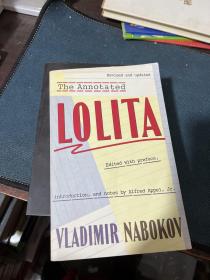
The Annotated Lolita
九品北京
¥ 120.00
-
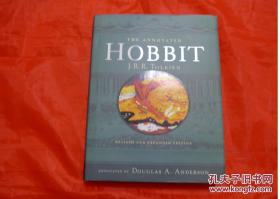
The Annotated Hobbit
九品厦门
¥ 280.00
-
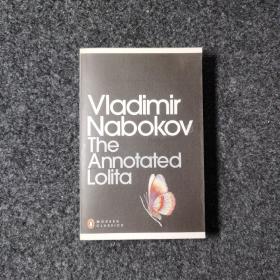
The Annotated Lolita
九品上海
¥ 90.00
-

the annotated alice
八品珠海
¥ 200.00
-
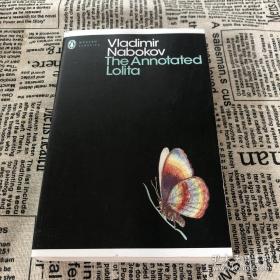
The Annotated Lolita
八五品厦门
¥ 98.00
-

The Annotated Hobbit
八五品厦门
¥ 220.00
-

The annotated Emma
九五品北京
¥ 138.00
-

The annotated Mona Lisa
八五品烟台
¥ 260.00
-

The Annotated Mona Lisa
九品济南
¥ 150.00
— 没有更多了 —










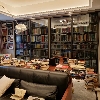
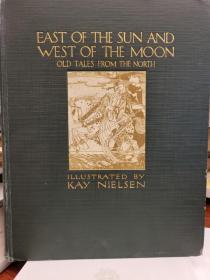
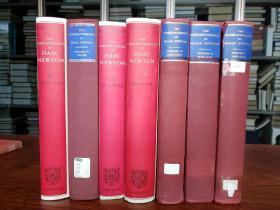

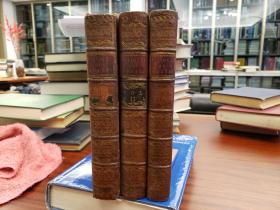
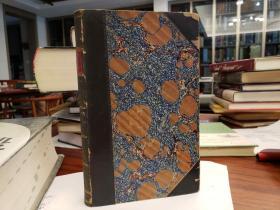
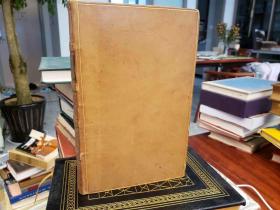



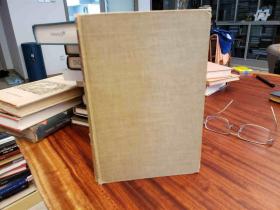


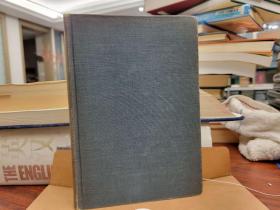


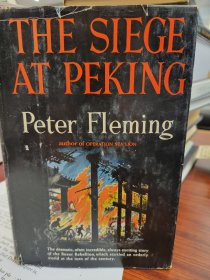

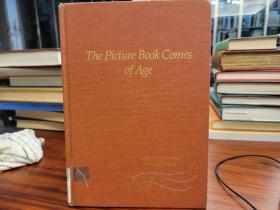

以下为对购买帮助不大的评价